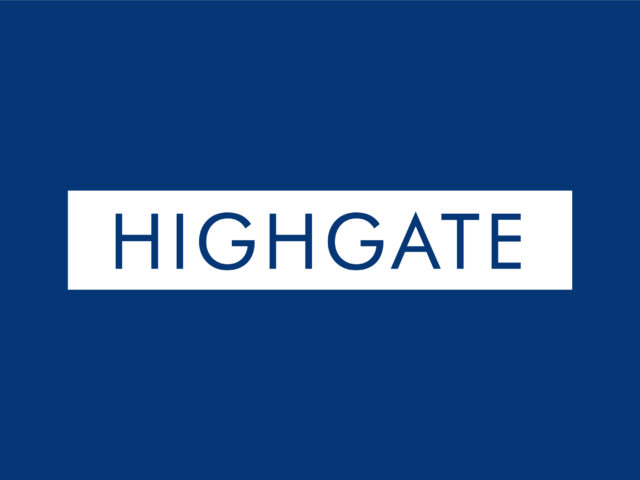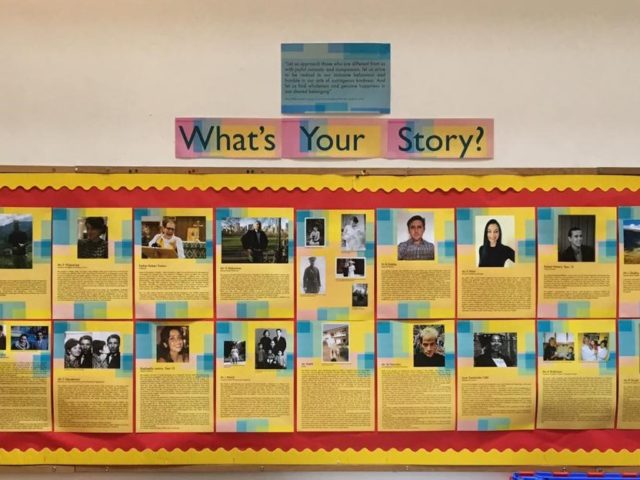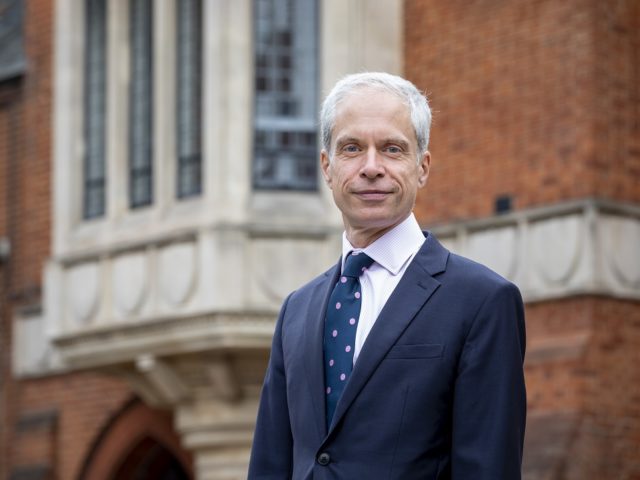My diary is full of sad entries which have fallen victim to the lock-down: plays, concerts and art exhibitions and, this year, an inaugural Arts and Humanities Week. Thick glumness beckoned: it was as if the dark days of January – full of mock exams and evenings devoted to strategy or governors’ meetings, but on screen – had come early. But I hadn’t reckoned with the inventive spirit of colleagues and pupils whose locked-down, pent-up creative and intellectual energies have burst forth across Instagram and Hero! The virtual Arts and Humanities Week – which, of course, is curated online – is staggering. Not only have musicians, artists, writers and actors brought to digital performance and screen their individual and collaborative work – you really will have to see and hear it to believe it! – but students of the humanities have pitched their minds against colossal issues with the fury and intensity that comes of being fired up by curiosity or disbelief: Covid-19, housing inequality, democracy, how we read an art gallery, homelessness, contemporary fiction, racism.
I happened to land on a university website just before posting this blog (in a search for a replacement speaker for our postponed Middle School prize-giving – suggestions welcome!) and was struck by its news page: two columns – ‘Sciences’ and ‘Arts’, with agreeably symmetrical distillations of the creative and intellectual life in its galleries, laboratories, libraries and lecture halls. The visual balance was immediately clear, and it did not invite the website visitor to ask whether the university was strong on science or strong on the arts.
Asking this question is a peculiarly English quirk, but an understandable one: the price we pay for early specialisation and the very deep levels of subject knowledge (take a look at the Arts and Humanities Week e-magazine!) which our pupils secure is an assumption that, because our children will eventually choose a pathway towards the sciences or the arts, they should start doing so early on. We overlay that with a sense that one or other discipline will pay richer dividends and a hierarchy of subjects is born.
I’ve got used to this and, to be honest, answering these conundrums keeps me in a job! I bang the drum for maths, science and technology with fervour, revelling in the vigorous dispelling of short-sighted short-hands and puncturing preconceptions, recalling the battles my splendid predecessor, the bewhiskered Dr Johnston, fought to get sciences on to the Highgate curriculum in the 1930s. And so it is that I relished the brilliantly assertive call to arms of the Arts and Humanities at Highgate: the staff editors explain that they, Arts and Humanities, give us ‘access to what it means to be human’. Precisely.
What jumps out in this week, and in the parallel STEM week in March, is the passion of the pupils who get involved, leading society talks and debates, curating exhibitions, writing papers, performing; passion, because they have been allowed to study what they love, what intrigues them, to go where curiosity has taken them. Young people will use what I call ‘discretionary effort’ to pursue a passion, or a goal linked to a passion, and it makes for intoxicating learning. But it also sears into their experience the very qualities which make them so utterly employable: prosaic, I know, but that realisation that it is how you work and, at times, how hard you work, how deep you will dig to do more than your employer may rightfully expect, which makes you the winning applicant, the successful entrepreneur.
My own professional life was shaped by the excitement at the meeting of great ideas in the literatures of France and Germany, and the intrigue at the relationship between language and identity. A son for whom academic music and singing are his raison d’être, a daughter studying maths, further maths, more maths and even more maths, and another son whose omnidirectional curiosities mean he’s creatively torn between the stage, politics, tech, Russian and art. As parents we wonder at how differently from each other and ourselves our children turn out, but surely that’s because, when we let them follow their passions, they grasp what it means to be fully human? A big thank you to the Arts and Humanities, here at Highgate, and throughout the land, for showing us that passion in action!


